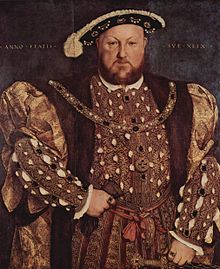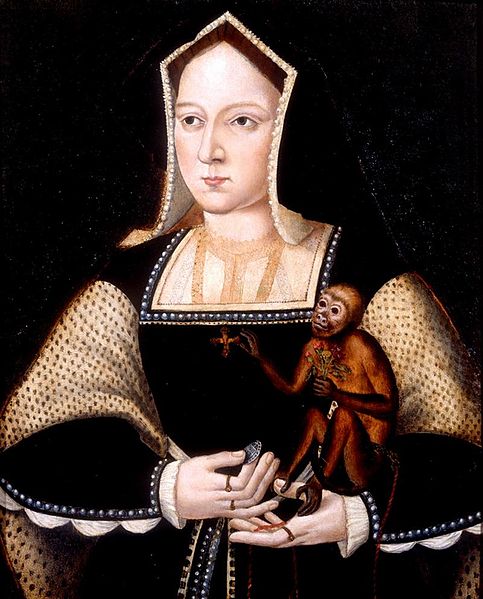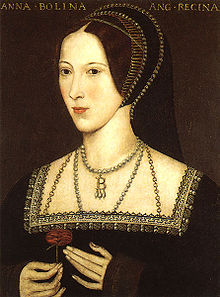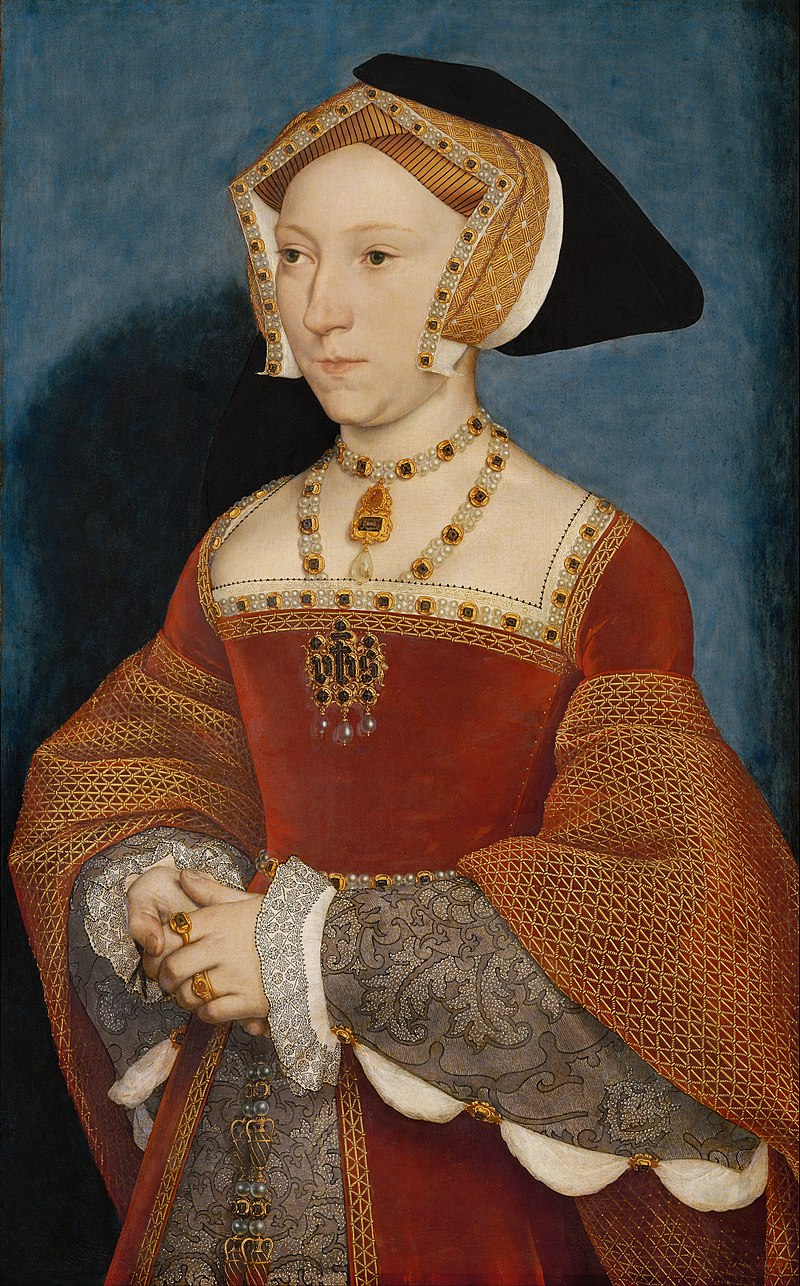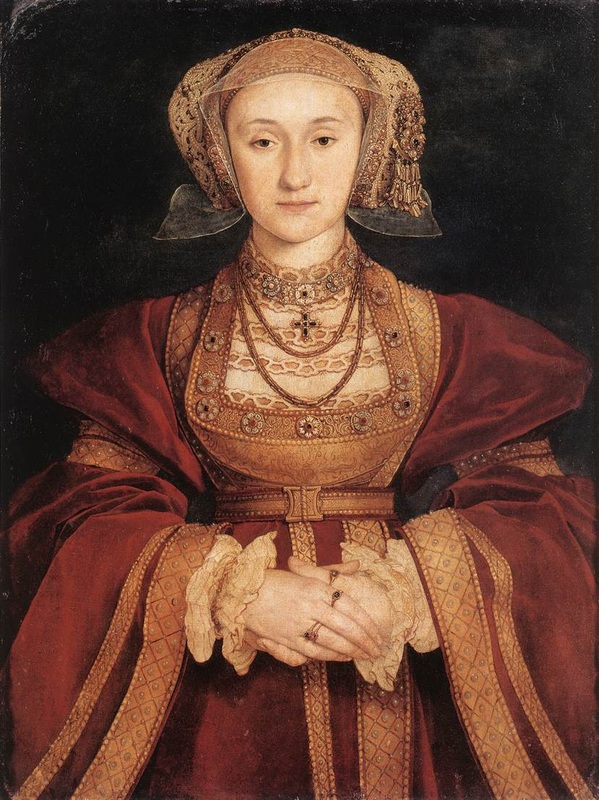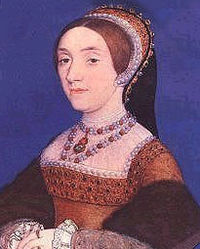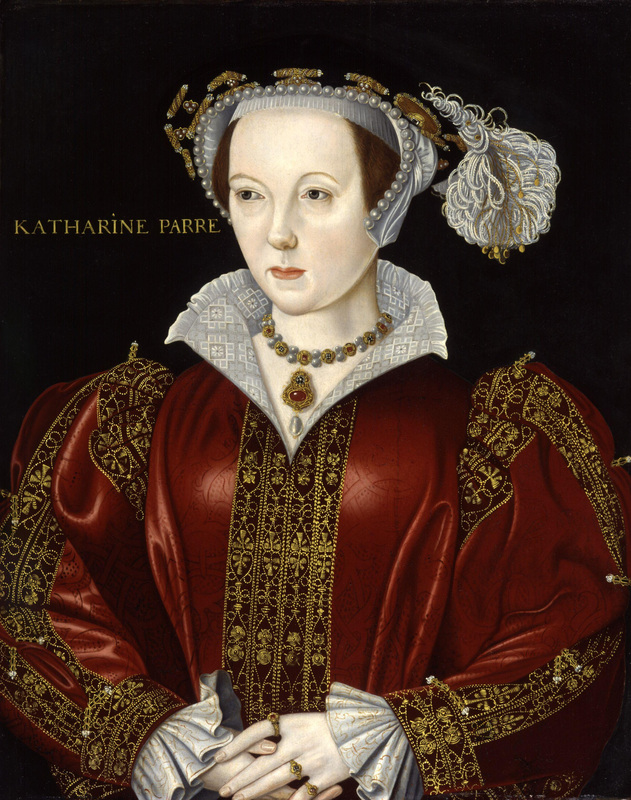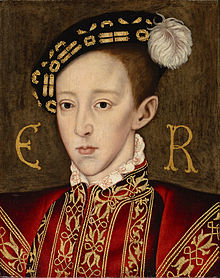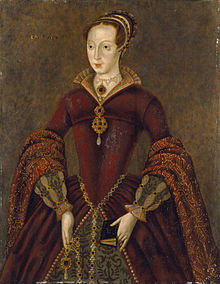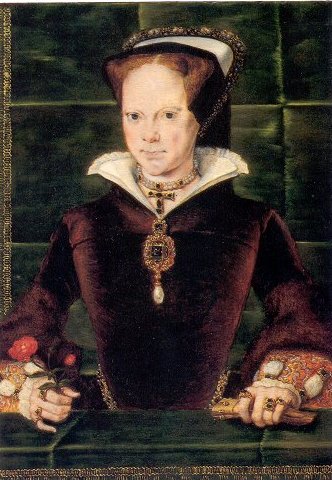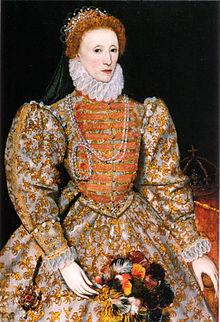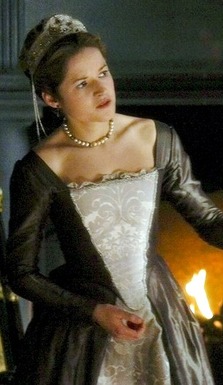
No contemporary portrait of Jane Boleyn exists, which is why I will be using The Tudors' pictures in this post. I'd like to start out by saying that, although I don't have the highest regard for Jane herself, I loved the way she was portrayed in the Showtime series by Joanne King. I thought the actress really nailed the manipulative, but confused, nature of the troubled woman, and I think that by the time of her beheading, viewers could understand the turmoil and stress of Jane's life that caused her to make some (rather unfortunate) decisions.
Born in 1505, she was named Jane Parker - daughter of Henry Parker and Alice St. John. Her family was wealthy and well connected, and she was a distant cousin of King Henry VIII, which made it quite easy for her family to arrange a smart match between themselves and the up-and-coming power family, the Boleyns. However, her time at court began well before her marriage to George Boleyn. Records reveal that she was probably sent into Queen Katherine of Aragon's service by the age of fifteen, and that she was present at the Field of Cloth of Gold in 1520.
Marriage to George Boleyn
Thought to be an attractive young woman, she married Anne Boleyn's brother George sometime between 1524 and 1525. Of course, this was several years before Anne Boleyn was Queen of England, but the Boleyns were certainly on the rise, so this would have been thought to be an impressive match for her. There are no records to indicate whether or not she and George were in love, or that he mistreated her as The Tudors shows. (I'd also like to point out that there is no evidence that George Boleyn was homosexual, and although no children were produced from Jane and George's marriage to our knowledge, we shouldn't speculate that he did not sleep with her.) Interestingly, most fictional portrayals of Jane and George Boleyn choose to show their relationship as a strained and unloving one, with George wanting very little to do with her. Although this may be the case, I think it's important to point out that there doesn't seem to be any factual evidence for it.
Relationship with Anne Boleyn
Another feature of Jane that we tend to see in fictional portrayals is her poor relationship with her sister-in-law, Anne Boleyn. In Philippa Gregory's The Other Boleyn Girl, we see Jane as a jealous woman who hates Anne because George wishes to spend more time with her than he does with his wife. In the movie version, we see Jane snap at George when he tells her that he has been to visit his other sister, Mary. Clearly jealous, Jane replies, "As ever!" When George presses on and says that, soon Jane will be doubly jealous when Anne returns to court, Jane's eyes fill with tears and she replies, "I am your wife. You never lie with me." Of course, this scene is very mild compared to Showtime's portrayal of Jane's feelings towards Anne and George. In The Tudors, we see George Boleyn brutally rape Jane and leave her for his male lover, Mark Smeaton - (once again, without evidence). In both cases, Jane is jealous of the other people in her husband's life, and she plays a role in 'tattling' on George and Anne's many private encounters in Anne's bedroom. However, despite these harsh portrayals, there is actually no evidence that Jane disliked Anne. In fact, quite the opposite may be true! In 1534, Jane played a part in scheming with the newly crowned Queen Anne to banish one of the King's mistresses from court. When it was discovered that Jane had been apart of the plan, she herself was exiled from court for a few months - receiving punishment for helping Anne! Perhaps this shows more of a kindship between the two ladies than we previously thought.
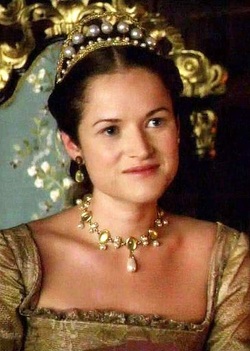
Unfortunately, so little is known about Jane Boleyn, that it is hard to pinpoint exactly how much she affected the Boleyn's destruction, but most modern historians seem to agree that it was largely because of her testimony that George Boleyn was accused and charged with adultery and incest with his sister. Was this an act of malice and revenge upon the husband who had never loved her? Perhaps, but as I said before, we can't be sure! It is possible that Jane happened to see George and Anne in an intimate moment (perhaps hugging or talking closely) and misconstrued what she saw. There is absolutely no evidence that Jane's testimony against the queen and her husband was out of spite or hatred towards either of them. In fact, she would have risked quite a lot by testifying at all - being tied to the Boleyns, she risked her own destruction alongside them. Jane's recent biographer, Julia Fox, stands up for her when she explains the difficulty of the testimony: "The questions to Jane [Rochford] would have come thick and fast... Faced with such relentless, incessant questions, which she had no choice but to answer, Jane would have searched her memory for every tiny incident that occurred to her..." However, not everyone is so kind and forgiving. George Wyatt, son of the childhood friend and possible lover of Anne Boleyn, Thomas Wyatt, called Jane a "wicked wife, accuser of her own husband, even to the seeking of his own blood." Other historians of the Georgian and Victorian eras were equally harsh. However, no matter the reason for Jane's testimony against George and Anne, we can assume that the position she found herself in in 1535 was a very difficult one. Whether she was betraying a loving husband because of a great amount of pressure she was under, or if she was actively seeking to destroy a man who was unfair to her... we can assume that she was an unhappy and very troubled woman at the time.
Life After the Boleyns
There can be no question that the destruction of the Boleyns greatly affected Jane, though she mercifully avoided prosecution herself. The lands and titles associated with the Boleyns were withdrawn, and she was unable to benefit from George's fortune without a son. However, she was able to keep her title of Viscountess of Rochford, and she soon found herself back at court. She probably returned to court within a year of her husband's execution, and served Queen Jane Seymour in her household. Because of Jane's title, she was able to have her own small household, and she lived quite a lavish life at court. After Jane Seymour's death in 1537, the king remarried the German Anne of Cleves, but that marriage ended quickly in favor of Henry's fifth wife, the teenaged Katherine Howard. Now this is the point of Jane's life that really becomes difficult. Of course, at the time, Jane must have thought that she'd made it quite far since her husband's death and her own financial struggles. Here she was, serving the fifth queen of Henry VIII and proving herself to be a well-adapted and wealthy court lady. Still unmarried, she seemed to be quite content with her life... though that would only last so long!
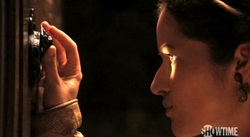
Jane became one of Katherine Howard's principal ladies in waiting and quickly became one of the Queen's favorites. Unfortunately, her status as one of Katherine's favorites may have negatively influenced her to stoop to an unsavory and dangerous level when she began arranging secret meetings between Katherine and one of Henry VIII's companions and courtiers, Thomas Culpeper. Young Katherine, clearly out of her element as the queen to a man in his fifties, may have pressured Jane to help her find a more suitable and enjoyable arrangement. Of course, once Katherine's unfortunate past (filled with lovers and premarital relations) surfaced, investigations of the Queen and her actions ensued, putting both her and Jane at risk. As we know, the truth of the Queen's affair with Thomas Culpeper surfaced, and Jane was known to be part of the situation. Unfortunately for Jane, a letter from Katherine to Thomas mentioned Jane's involvement in their relationship, and that letter was intercepted and used as evidence during the questionings. At that point, Jane had no hope of mercy. She was taken to the Tower of London and was questioned for many months. The stress and fear of being held prisoner clearly affected her, because by the beginning of 1542, she was pronounced insane. One can only imagine the amount of psychological stress put on someone who knew her fate was execution - especially for someone who had seen the same thing happen to her own husband and sister-in-law. Interestingly (and harshly), King Henry VIII amended the law saying that an insane person could not be executed. He wanted Katherine and Jane to be rightly punished, so despite Jane's insanity, she was doomed to suffer just like Katherine. Despite her mental state, Jane faced death on 13 February 1542 with grace and composure, just as Queen Katherine did before her. A witness named Ottwell Johnson wrote, "their souls [must] be with God, for they made the most godly and Christian end."

It is sad, yet somewhat ironic, that when Jane Boleyn, Viscountess of Rochford, was executed, she was buried beneath the altar of the Chapel of St. Peter ad Vincula, very near the bodies of George and Anne Boleyn - the two people whose fate she had helped decide only six years prior. Because of that, many people think it was justice being served, but I think that's a bit harsh. Personally, I think that Jane was simply an unfortunate Tudor woman who made a bad decision by allowing herself to be swept up into Queen Katherine Howard's unsatisfactory love life. Sure, she also may have shown her cowardly true colors by bringing about the death of her husband and Henry VIII's second queen, but can any of us blame her or judge her without knowing what it felt like to be in her shoes? So many modern interpretations of Jane show a cruel, manipulative, and spiteful woman - but in reality, I have a feeling that Jane was much different. Of course, we can't know all the details of her life, and there is actually very little known, but I think Jane Boleyn deserves a bit more benefit of the doubt. We can look at her as a Tudor villain and a woman who got what was coming to her, but I think it would be more intelligent and beneficial to see her as a woman who was simply put in a number of unfortunate and trying situations. Personally, I would not have liked to live the life that she did, and I can't imagine anyone else would either.
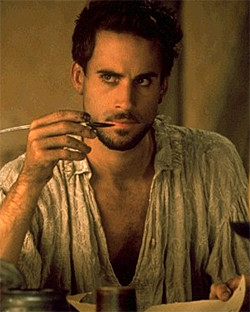
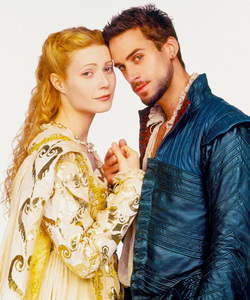
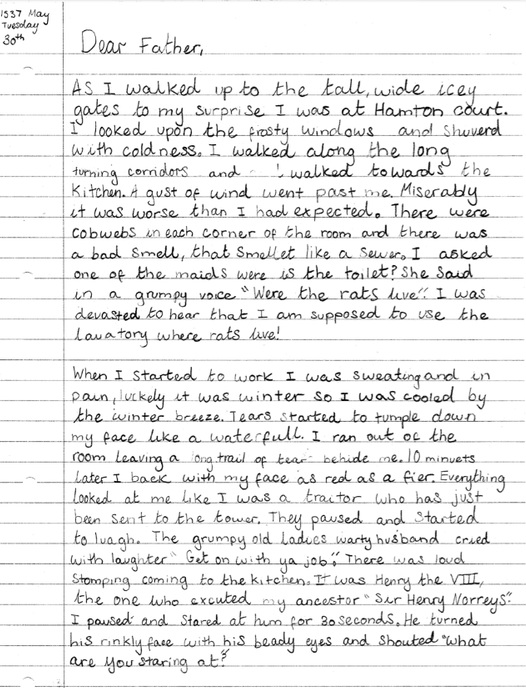
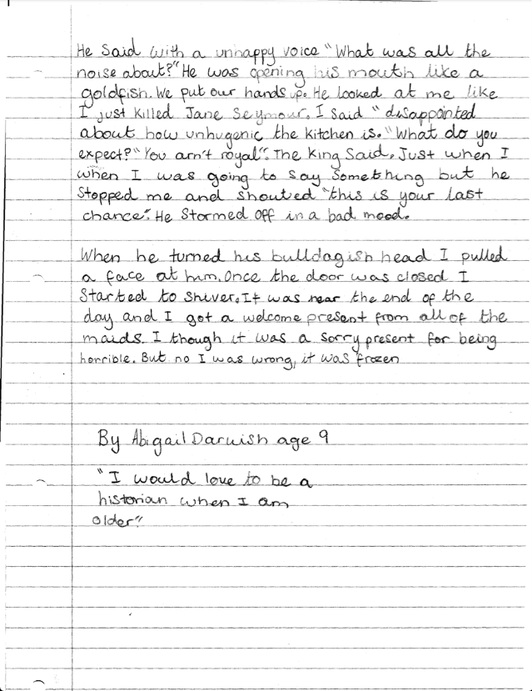
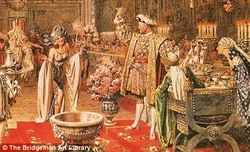

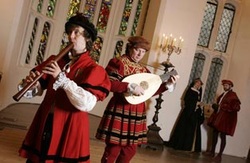
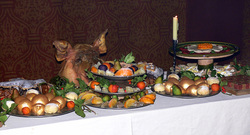

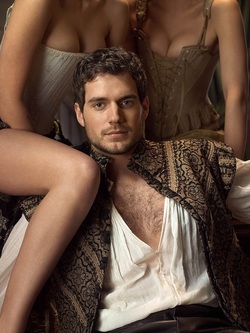

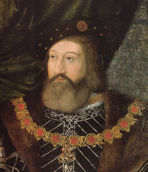
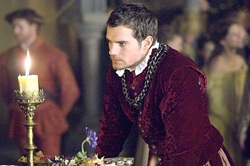
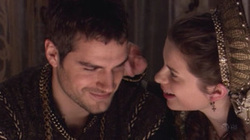
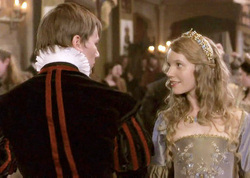
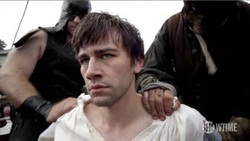
 RSS Feed
RSS Feed
